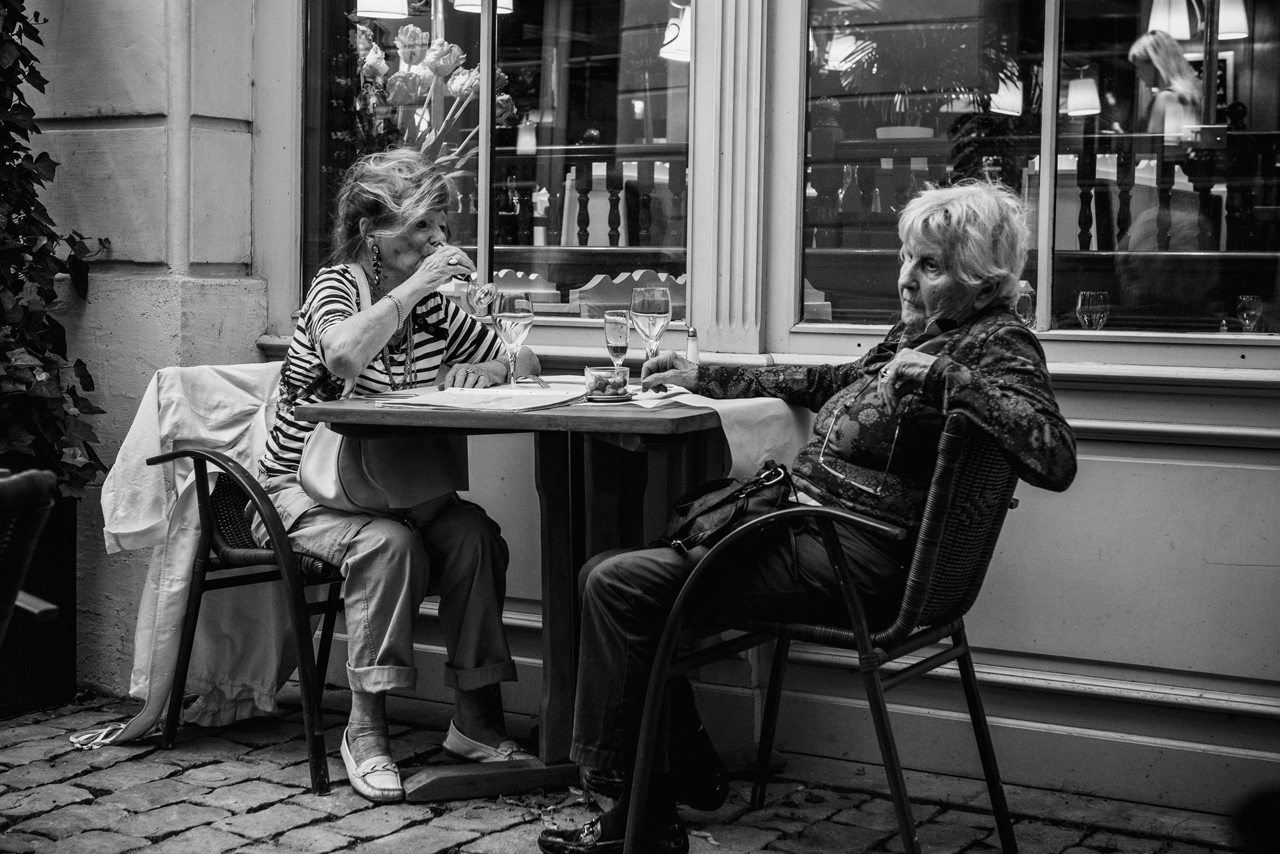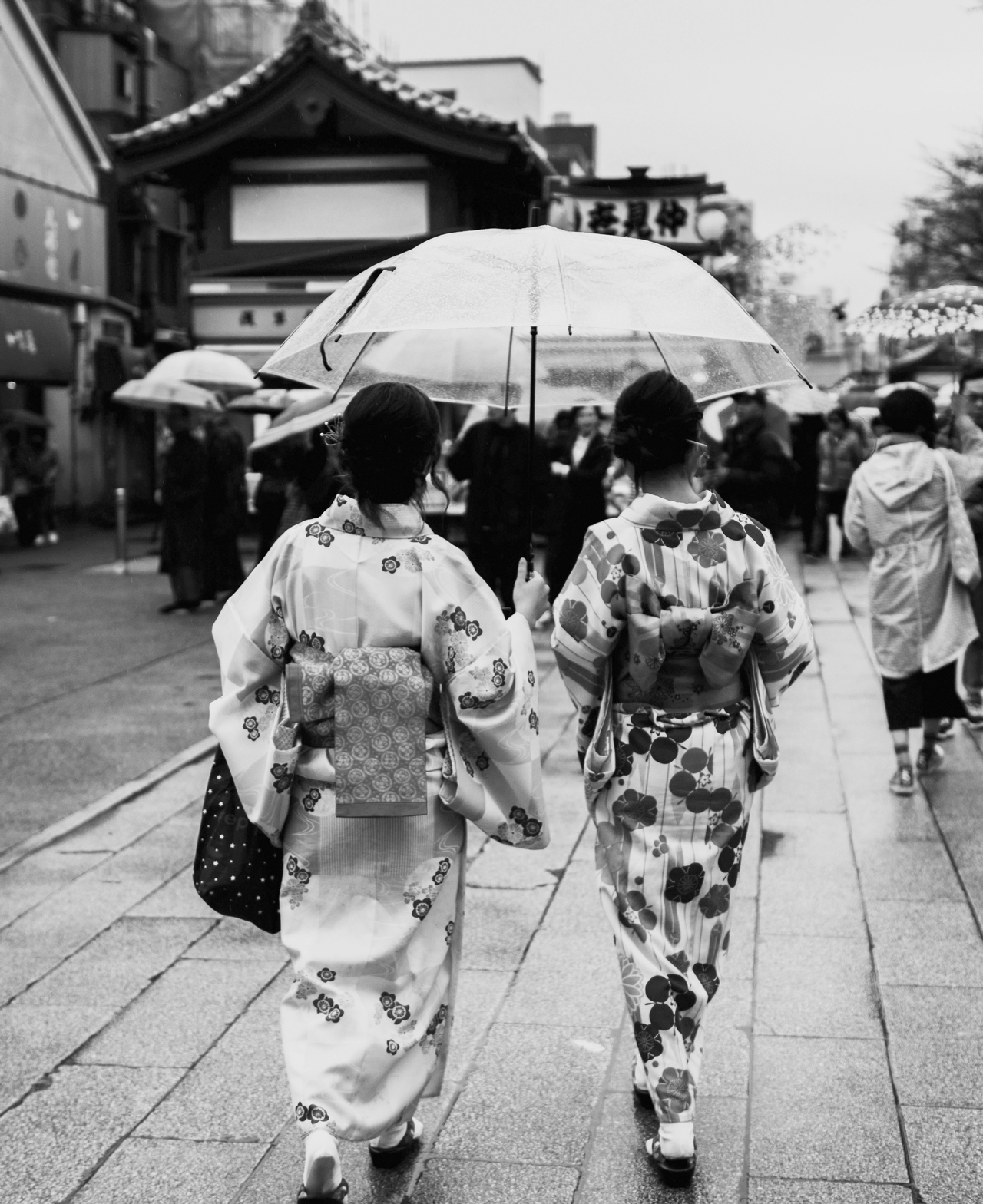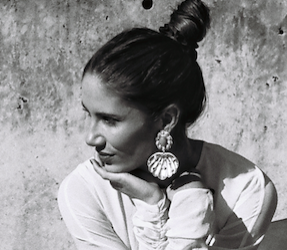News feed

There’s a familiar scene in season four of Sex And The City, where the prim and ever-traditional Charlotte reaches her hand across the table at a late-night Manhattan diner to comfort her heartbroken friend, Carrie.
“Don’t laugh at me, but maybe we could be each other’s soulmates,” she suggests, her tone gentle and unsure. “And then we could let men be just these great, nice guys to have fun with.”
When this episode aired in 2001 the thought of placing our friends at the same level of importance as finding ‘The One’ seemed rather absurd – especially when it came from the most conventional, marriage-obsessed character in the popular series. But after watching the friendship group quite literally hold each other’s hands through broken marriages, the births of children, partners’ funerals, work dramas, heartache, loneliness, long brunches and longer dinners – all experiences we can relate to in our own lives – was Charlotte onto something? Are friendships, in fact, the great romances of our lives? And, in a society that places them second to families and romantic partners, should we be stopping more frequently to consider, value and protect them?
“Years ago, I might have thought that Charlotte’s consideration was quite defeatist, a representation of how burned she’d felt by the countless bad experiences of dating men,” says Gyan Yankovich, journalist and author of new non-fiction read Just Friends. “Now, of course, I see it completely differently. A lot has changed in the last two decades, particularly around the expectations placed on women when it comes to prioritising marriage and children above all else. While Charlotte’s idea may have been shocking at the time, I really believe it’s now an idea many women carry with them – whether they’d use those exact words to describe this attitude or not.”
Why Do Friends Still Finish Last?
Yankovich’s Just Friends is a heart-first exploration into the gulf between the importance placed on friendships and that of romantic or familial relationships. Backed by scientific studies and heart-warming case studies, it’s a plea for the reader to recognise just how much our friends touch and enrich our lives. These are the people who are essentially the great historians to our years, the ones who could paint a full mosaic of the people we really are. But actively writing our friends into our futures isn’t a conventional way of thinking and doing.
Historically speaking, there are a multitude of reasons why friendships sit in the shadows of nuclear families and romantic soulmates.
“We think about all the milestones we have in our lives; fall in love, move in with someone, get engaged, get married, have kids. Obviously not everyone does that but so much of how we imagine our 20s and 30s to be is around finding ‘The One’,” Yankovich says. “I think because that is very traditional, and how a lot of people expect their life to look, it’s kind of hard to fight the norm and be like, ‘No, I’m going to be the one person who prioritises friendship more’.”
Yankovich notes there is also an incredible lack of films, music and books which celebrate friendship. And without this diversity of literature and cultural touchstones, it’s little surprise our priority list can remain skewed.
“Falling in love is one of the most exciting, intimate, and world-shaking experiences we can have, so in many ways it makes sense that the idea of love – finding it, keeping it, falling out of it – has inspired so much of our culture,” Yankovich explains. “But what I believe is too often overlooked is the romance that can exist within friendship, and the unique pain of falling out with, or completely losing, a friend.
“Since we’re children we’re led to believe that our romantic relationships are the ones that should sit at the centre of our lives, sustaining us and guiding our futures, but for many people that’s just not the reality,” she continues. “And, through this lack of pop culture and literature, those people are too often left short-changed when it comes to seeing their own experiences represented on television and in music, books, and films.”
Just Friends By Gyan Yankovich is out now via Ultimo Press.

A Matter Of Obligation
“Part of the magic of falling in love – whether it be romantic or platonic – is not knowing exactly when it will happen,” writes Yankovich in her book. But once the meet-cute is over and you’ve laid down some really great friendship foundations, why do we generally exclusively reserve moral obligations for family members?
“I’ve always thought about this word ‘obligation’ as a negative thing, and it’s always associated with family. Why do we feel obligated to go to family birthdays or to call someone or to make sure we’re wishing everyone a Merry Christmas?” asks Yankovich. “If you reframe that sense of obligation, and put that lens on your friendships, you can feel yourself ticking off the effort. Lately, I’ve been getting into the habit of asking myself, ‘If this person was a family member, what would I feel obligated to do for them?’
“It’s a really nice way to think because you realise that even if we regard our friends as family, we often don’t go to the same amount of effort that we might for a family member.”

Friends Are Good For Your Health
In 2016, American actor and activist Jane Fonda, now 86, and her best friend, actor and comedian Lily Tomlin, now 84, gave a stirring Ted Talk on lifelong female friendship and how we really need our friends’ counsel as we age.
“I don’t know what I would even do without my women friends,” said Fonda. “I have my friends, therefore I am. They make me stronger, they make me smarter, they make me braver, they tap me on the shoulder when I may be in need of course correcting.
“As I’ve gotten older, I’ve understood more the importance of friendships. So, I really make an effort to reach out and make play dates and not let too much time go by.”
In their talk, Fonda and Tomlin put a spotlight on a landmark 2000 study by the University of California which found women are biologically programmed to turn to their female friends in times of stress. Research conducted before the 1990s excluded women, and thus made the general conclusion that humans react to stressful situations with the ‘Fight or Flight’ response. The study in 2000 suggested women respond very differently to men and founded the ‘Tend and Befriend’ theory.
“It turns out that when [women] get stressed, our bodies get flooded with oxytocin which is a feel-good, calming, stress-reducing hormone – which also increases when we’re with our women friends,” Fonda told her audience, referencing the study. “I do think that’s one reason why we live longer.”
According to the study’s authors this calming response doesn’t occur in men, because testosterone – which ramps up in men under stress – reduces the effects of oxytocin.
“I feel so bad for men, because they don’t have that,” Fonda quipped.
In her book, Yankovich acknowledges both the ‘Tend and Befriend’ theory and a 2005 study which looked at the friendships of older Australians living in care facilities. After a decade – and after controlling a range of health and lifestyle variables – researchers found that people with greater networks of friends lived longer than those without. Yes, good genes are great, but the joy of great friends can actually lengthen your life. And as Yankovich points out, this benefit can be achieved from “peripheral” friends, too.
“We all know loneliness has a really negative impact on our mental health, physical health and longevity,” says Yankovich. “What was really interesting to me was how sometimes the fix for that loneliness can come from people like our neighbours, who you might interact with once a week when you’re both putting the bins out. Similarly, a friend at work who you see when you’re filling up your water bottle. While fleeting, those little interactions all add up to something special which makes us feel like we’re a part of a social network as we move through the day.”
Just Friends By Gyan Yankovich is out now via Ultimo Press.

Friends For The Future
If someone were to ask us to imagine our life in five or ten years time, so often we think about who we will be paired up with romantically, or if you’re of a certain age, ‘Will I have kids?’ ‘Where will I live?’ or ‘What will my career look like?’
“Friends aren’t often part of that equation and by not factoring them into the futures that we’re imagining – our five- and 10-year plans – we’re missing so much!” says Yankovich. “Who are the people you want in your life in 10 years? And if those people are your friends, what are you going to do between now and then to ensure those people will remain around you? I think if we all did that a little bit more, our friendships would be stronger, and we’d also feel more excited and confident about the years ahead.”
But how do we make our friends a part of our future planning?
“Some of us journal to help figure out what we really want, while others make vision boards or list our goals,” Yankovich explains. “Whatever way you choose to work on your five- or 10-year plan, make a point of adding that ‘friendship’ subheading, and set aside real time to consider your friends separate to your career, finances, or family goals. Being intentional about friendship, as strange as it might feel at first, is only ever going to make your relationships feel more meaningful.”
It’s at this point that I should probably tell you Yankovich has been one of my best friends for a little over a decade. One of our favourite things to do at Christmas time is to host a glamorous dinner with our best girl friends – one where everyone must dress up and in lieu of Christmas presents, gift each other a Christmas card. In it, they must detail three things: what they admire most about their friend, a favourite memory from the year that was, and what they are most looking forward to seeing their friend achieve in the year ahead. It’s a practise that is usually reserved for eulogies at funerals – but why not share how wonderful we think each other are while we are all together and alive?
Across the years, I’ve collected and kept many cards and if I’m ever feeling down, I revisit the little stack to remind myself of how my friends see me. Maybe this idea is just one way to firm up a future with your platonic loves.
Yes, when it comes to great friends, there are some important questions to consider: Why can’t they sit side-by-side, in equal levels of importance, with our quests to find a wonderful romantic partner and/or build a family? Why, in Australia, can’t we take carer’s leave for friends who need our help? Why isn’t there much literature on friendship breakups? Why can’t friends be one of many loves of our lives – and why don’t we treat them as such?
“After many conversations I had while writing my book, I’m sure the tide is turning,” says Yankovich. “Young people have such radical – and inspiring – ideas of love, family, romance and connectedness, which all lead back to some really revolutionary ideas about friendships. I’m genuinely excited to see the future that’s possible when we value our closest friendships just as much as our other important relationships. To me, that’s really exciting.”
Just Friends By Gyan Yankovich is out now via Ultimo Press.
Meet author Gyan Yankovich, in conversation with GRAZIA’s Jessica Bailey, below. The pair are also best friends.









